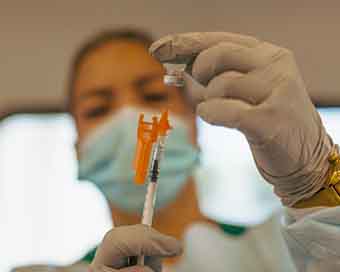Gallery
 PM Modi visit USA
PM Modi visit USA Only the mirror in my washroom and phone gallery see the crazy me : Sara Khan
Only the mirror in my washroom and phone gallery see the crazy me : Sara Khan Karnataka rain fury: Photos of flooded streets, uprooted trees
Karnataka rain fury: Photos of flooded streets, uprooted trees Cannes 2022: Deepika Padukone stuns at the French Riviera in Sabyasachi outfit
Cannes 2022: Deepika Padukone stuns at the French Riviera in Sabyasachi outfit Ranbir Kapoor And Alia Bhatt's Wedding Pics - Sealed With A Kiss
Ranbir Kapoor And Alia Bhatt's Wedding Pics - Sealed With A Kiss Oscars 2022: Every Academy Award Winner
Oscars 2022: Every Academy Award Winner Shane Warne (1969-2022): Australian cricket legend's life in pictures
Shane Warne (1969-2022): Australian cricket legend's life in pictures Photos: What Russia's invasion of Ukraine looks like on the ground
Photos: What Russia's invasion of Ukraine looks like on the ground Lata Mangeshkar (1929-2022): A pictorial tribute to the 'Nightingale of India'
Lata Mangeshkar (1929-2022): A pictorial tribute to the 'Nightingale of India' PM Modi unveils 216-feet tall Statue of Equality in Hyderabad (PHOTOS)
PM Modi unveils 216-feet tall Statue of Equality in Hyderabad (PHOTOS)The Badminton Association of India (BAI) has announced a 14-member-strong India squad for
- Men’s Sr Hockey Nationals to be played in division-based format from April 4
- Mensik denies Djokovic 100th title in Miami final
- KIPG: Son of a vegetable vendor, Bihar’s Jhandu Kumar eyes Worlds, 2028 Paralympics
- Hardik Singh credits hard work and team unity for receiving HI Midfielder of the Year award
- Djokovic, Alcaraz land in same half of Miami draw
Pfizer, Moderna Covid shots generates lasting immunity: Study Last Updated : 29 Jun 2021 01:56:42 PM IST 
Pfizer and Moderna vaccines, the first two jabs authorised for emergency use against Covid-19 by the US Food and Drug Administration (FDA), produce immune responses that are both strong and potentially long-lasting, finds a study.
While both vaccines performed well in clinical trials, and have been widely credited with reducing disease, concerns remained over how long immunity induced by the mRNA-based shots will last.The study, led by researchers from the Washington University School of Medicine in St Louis showed that nearly four months after the first dose people who received the Pfizer vaccine still had so-called germinal centers in their lymph nodes churning out immune cells directed against SARS-CoV-2, the virus that causes Covid-19.The team found that even three weeks after the first dose, all 14 participants had formed germinal centers with B cells producing antibodies that target a key SARS-CoV-2 protein. The response expanded greatly after the booster shot and then stayed high.Even 15 weeks after the first dose, eight of 10 people still had detectable germinal centers containing B cells targeting the virus."Germinal centers are the key to a persistent, protective immune response," said Ali Ellebedy, Associate Professor of pathology and immunology, of medicine and of molecular microbiology."Germinal centers are where our immune memories are formed. And the longer we have a germinal center, the stronger and more durable our immunity will be because there's a fierce selection process happening there, and only the best immune cells survive," Ellebedy added.Moreover, vaccination led to high levels of neutralising antibodies effective against three variants of the virus, including the Beta variant from South Africa that has shown some resistance to vaccines.Vaccination also induced stronger antibody responses in people who had recovered from SARS-CoV-2 infection compared to those who had never been infected. Among people without prior exposure to the virus, antibody levels rose slowly after the first dose and peaked one week after the second.Both Pfizer and Moderna vaccines were created with mRNA technology. Unlike most vaccines, which provide bits of viral or bacterial proteins to trigger an immune response, mRNA-based vaccines provide instructions for the body to build and release foreign proteins, such as the spike protein in the case of the SARS-CoV-2 virus.IANS New York For Latest Updates Please-
Join us on
Follow us on








172.31.16.186







